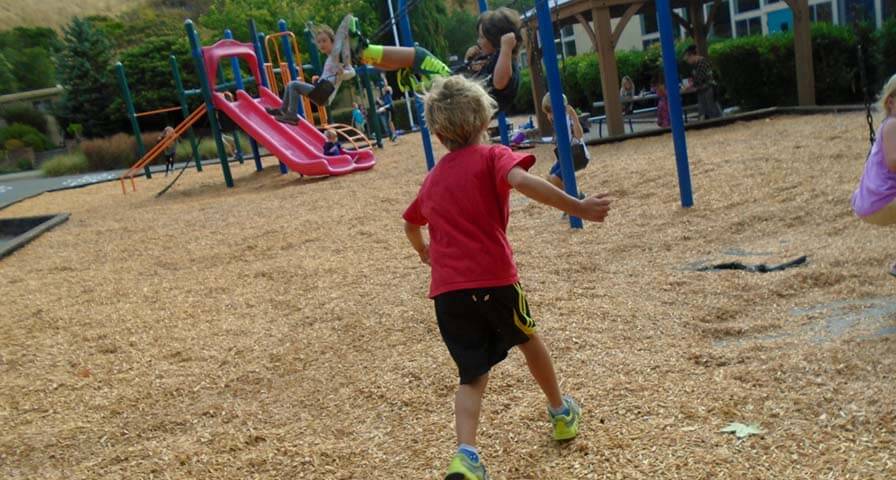Originally published March 8, 2018 by WAMU 88.5, American University.
By Kathy Goldgeier and Jonathan Wilson
Lawmakers in Virginia and Maryland are looking at ways to expand recess and physical education in elementary schools amid growing concern that kids don’t get enough exercise.
“It’s really staggering how out of a shape a lot of the kids are,” said Matt Slatkin, a P.E. teacher at Newport Mill Middle School in Kensington, describing his sixth-grade students. “I’m talking mile runs above 18 minutes — when they’re giving their best effort.”
 Maryland Del. Jay Walker (D-Prince George’s County) has introduced a bill that would guarantee elementary school students 150 hours a week of physical activity, including at least 90 minutes of physical education classes. The rest could come from other “developmentally appropriate moderate-to-vigorous activity, including recess.”
Maryland Del. Jay Walker (D-Prince George’s County) has introduced a bill that would guarantee elementary school students 150 hours a week of physical activity, including at least 90 minutes of physical education classes. The rest could come from other “developmentally appropriate moderate-to-vigorous activity, including recess.”
P.E. class time varies by county, with Montgomery County schools now providing 30-60 minutes of P.E. per week. Prince George’s County students get 40-90 minutes of P.E. per week.
“For a lot of these kids, it’s the only physical activity they get each week,” Slatkin said.
He noted that low-income and minority students may have the most difficulty getting exercise outside of school if they have to pick up siblings or have other responsibilities. And kids who don’t have enough money have a hard time playing organized sports “because the costs have skyrocketed,” he added.
A legislative analysis of the Maryland bill suggested that to meet its requirements, Montgomery County would need to hire 133 more P.E. teachers at a cost of more than $10 million next school year.
Walker has introduced similar bills for the past eight years. It’s not clear this one will get a vote either.
In Virginia, it’s a different story. A bill that would allow school districts to take a little bit of time from core academic subjects and use it for more recess won approval from both houses.
Virginia Del. Karrie Delaney (D-Fairfax and Loudoun counties) authored a House bill that aims to expand recess to make kids more active.
“The problem that our schools have right now with adding more recess time is that we’re required to provide five and a half hours a day of instructional hours,” Delaney said. Recess and lunch are separate. So adding more recess would mean lengthening the school day.
Delaney’s bill would change that by allowing recess to be counted as instructional time. “To allow recess to be counted as instructional time allows those minutes to be captured in the already-existing school day,” she explained.
The next question is which existing instructional classes would yield some of their time.
“We don’t want to cut into other precious areas like art and music and P.E. and specials,” Delaney said. The conference committee agreed buy 20 minutes of the school day by reducing the time required for the four core academic areas — math, English, science and social studies.
Delaney said doing so would be a win-win, according to parents she’s heard from. “Those are the areas where our children are underperforming because they simply don’t have the time to burn off that energy,” she said. “If they had a little bit more time in the day to run around, to play freely, to get some of that extra energy out, they would do better in their academic classes.”
The bill is expected to reach the governor’s desk later this week.
Seeking IHT Spirit System information?




